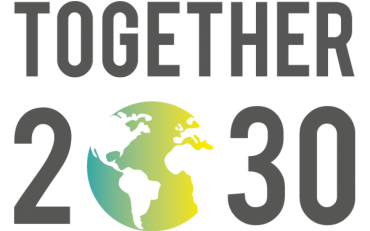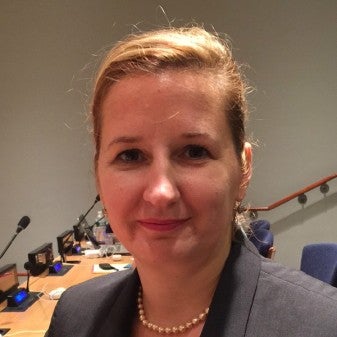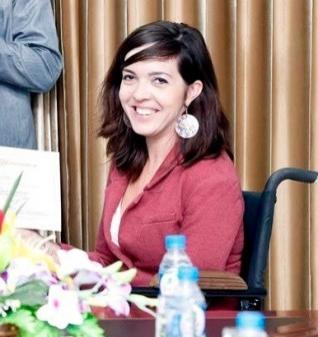As such, the significant and critical contributions of the disability community, due to lack of accessibility and prejudice, have often been relegated to the sidelines, viewed with tokenism and have generally occupied little space within discussions on international human rights and development.
However, the tide is shifting.
The explicit inclusion of persons with disabilities 11 times within the 2030 Agenda signified a transformative change and has positioned the rights of persons with disabilities at the center of development.
This inclusion has meant that persons with disabilities are not only to be included within development goals and programming, but also to have significant influence at the global level within follow-up, review, and other monitoring processes. The disability community realized that it was critical to provide a global platform for persons with disabilities to ensure a strong, unified presence and to develop collaborative messages. The Stakeholder Group of Persons with Disabilities, therefore, reflects this effort to build an organized, representative, and coordinated platform, led by persons with disabilities, that aims to uphold the UN CRPD in sustainable development processes.
A Seat at the Table
The outcome document of Rio+20, the “Future We Want”, recognized persons with disabilities as stakeholders, and guaranteed a seat at the table. Member States officially invited persons with disabilities to contribute to the sustainable development processes.
The ‘what’ and ‘how’ of the contribution was defined in the subsequent resolution A/RES/67/290, which explicitly outlined the rights of participation of stakeholders at the High-level Political Forum (HLPF). For the first-time persons with disabilities as an organized group had the right: (1) to attend all official meetings of the forum; (2) to have access to all official information and documents, (3) to intervene in official meetings; (4) to submit documents and present written and oral contributions; (5) to make recommendations; and (6) to organize side events and round tables, in cooperation with Member States and the Secretariat.
With Member States recognizing persons with disabilities as contributors to sustainable development dialogues, the disability community developed the Stakeholder Group of Persons with Disabilities, as a working platform, to organize contributions to the HLPF. Exactly how to effectively utilize the Stakeholder platform, however, has taken time to establish, and remains evolving.
Starting in 2014, one representative of the Stakeholder Group of Persons with Disabilities spoke for 30 seconds during the general debate of the HLPF and conveyed one concise message that persons with disabilities were ready and prepared to contribute. The 2015 HLPF marked the first official submission on behalf of the Stakeholder Group of Persons with Disabilities, and where representatives made three official statements. However, it was within the 2016 HLPF where the Stakeholder Group of Persons with Disabilities fully embraced and utilized the new platform in reviewing the first year of implementation of the Sustainable Development Goals by Member States. In preparation for the 2016 HLPF, the Stakeholder Group of Persons with Disabilities submitted an official position paper on the annual theme “Ensuring that No One is Left Behind” supported by over 370 organizations globally. During the Forum, representatives of the Stakeholder Group of Persons with Disabilities made 17 interventions during thematic discussions, the voluntary national reviews and the General Debate, and further co-organized and participated in several side events. Highlighting the historically untapped expertise of national level disability advocates, the Stakeholder Group organized a side event during the ministerial week with persons with disabilities from Europe, Africa, Asia, and Latin America on how effective collaboration between organizations of persons with disabilities (DPOs) and governments can be realized in implementing the SDGs. Critically, the formation of the Stakeholder Group of Persons with Disabilities also provided invaluable opportunities to collaborate and coordinate with the other Major Groups and other Stakeholders, where messages and interventions were strengthened with the unified voice of civil society.
While persons with disabilities have been invited to participate in the HLPF and other processes, the 2016 Stakeholder Group of Persons with Disabilities delegation of 22 individuals with diverse disabilities highlighted the prevalent accessibility barriers inhibiting their full participation at the UN level.
With a lack of international sign language interpretation, accessible material, mobile headsets amongst other barriers, representatives were required to advocate for their basic right to information and for a seat at the table, all the while advocating for the inclusion of disability within sustainable development policy. The recognition of these barriers and the efforts made since by the UN Secretariat to create a more accessible HLPF reflects the importance of the growing presence of the Stakeholder Group of Persons with Disabilities.
A Growing Platform
These contributions to the 2016 HLPF signify the increasing presence of persons with disabilities within discussions on sustainable development, largely due to the coordination and organizational platform provided by the Stakeholder Group. However, as we kick off preparations for the 2017 HLPF in December 2016, we are enthusiastic to address the substantial work yet to be done to ensure the inclusion of persons with disabilities at all levels.
With 40 Member States volunteering to present their Voluntary National Reviews as of December 2016, and with the annual theme addressing “Eradicating poverty and promoting prosperity in a changing world”, the scope of the HLPF is expanding reflecting the progress made in implementing the SDGs. The Stakeholder Group of Persons with Disabilities similarly is expanding advocacy efforts to include a more diverse representation of the global disability community and to ensure the participation of persons with disabilities within the national level implementation of the SDGs.
With over 200 individuals interested in contributing to HLPF 2017, we are enthusiastic for the Stakeholder Group of Persons with Disabilities to increasingly reflect the diversity of the global disability community.
With preparations underway and the work organized into nine Working Groups, we sincerely welcome the collaboration and input of those interested in ensuring the inclusion of persons with disabilities in sustainable development, guaranteeing that truly ‘nothing is about us without us.’
About the authors:
Orsolya Bartha, is the Senior Advisor on Development and Human Rights, International Disability Alliance (IDA).
Megan Smith, is the Inclusive Development Liaison, International Disability Alliance (IDA).



